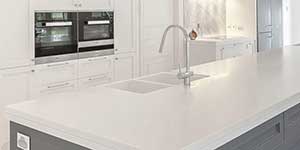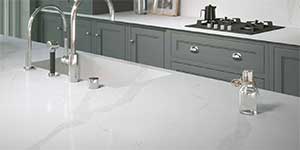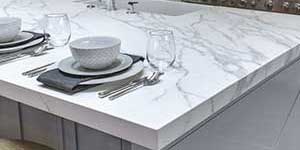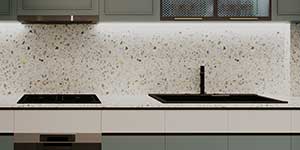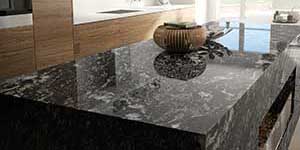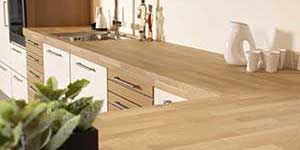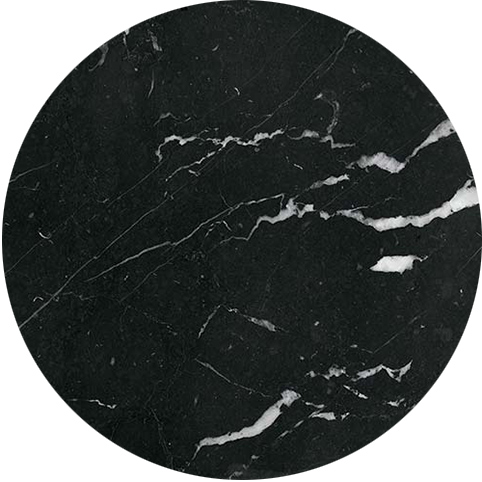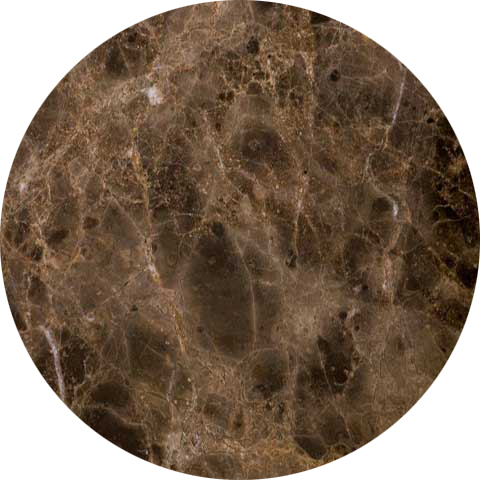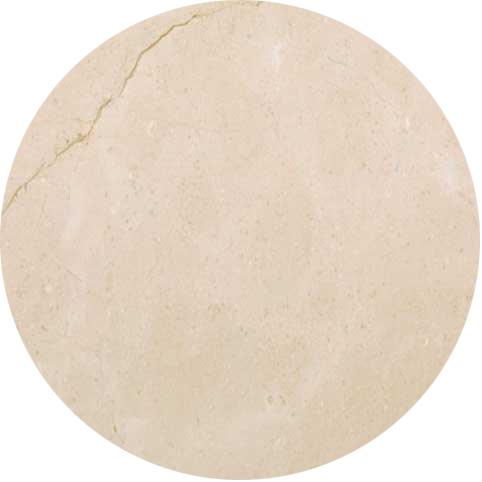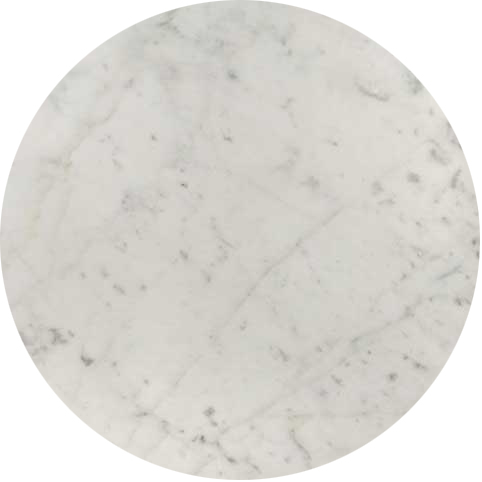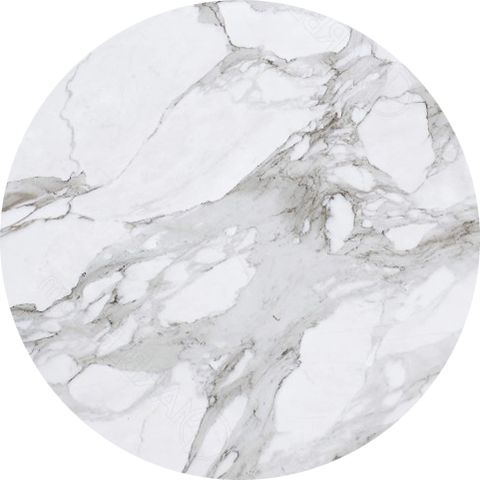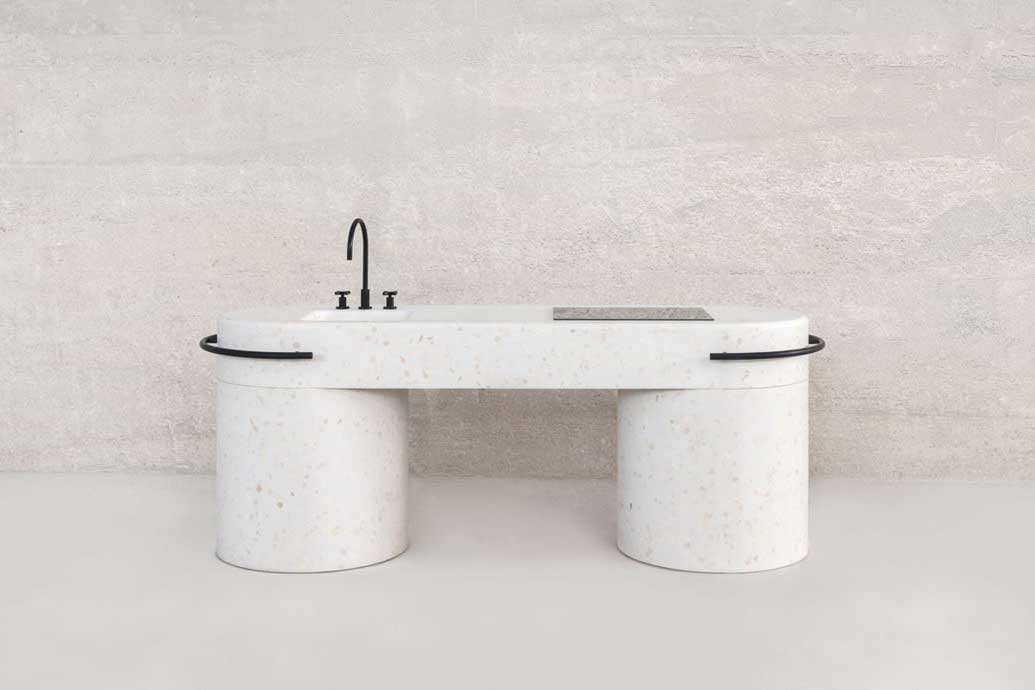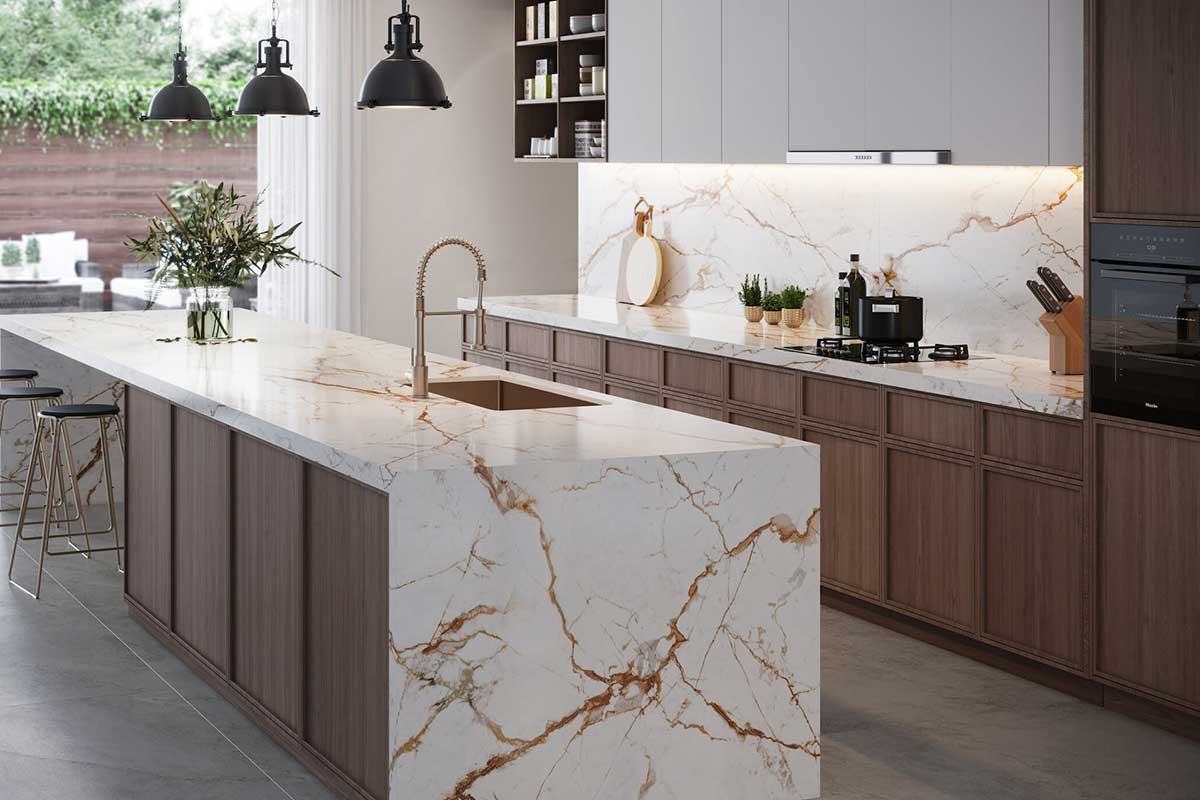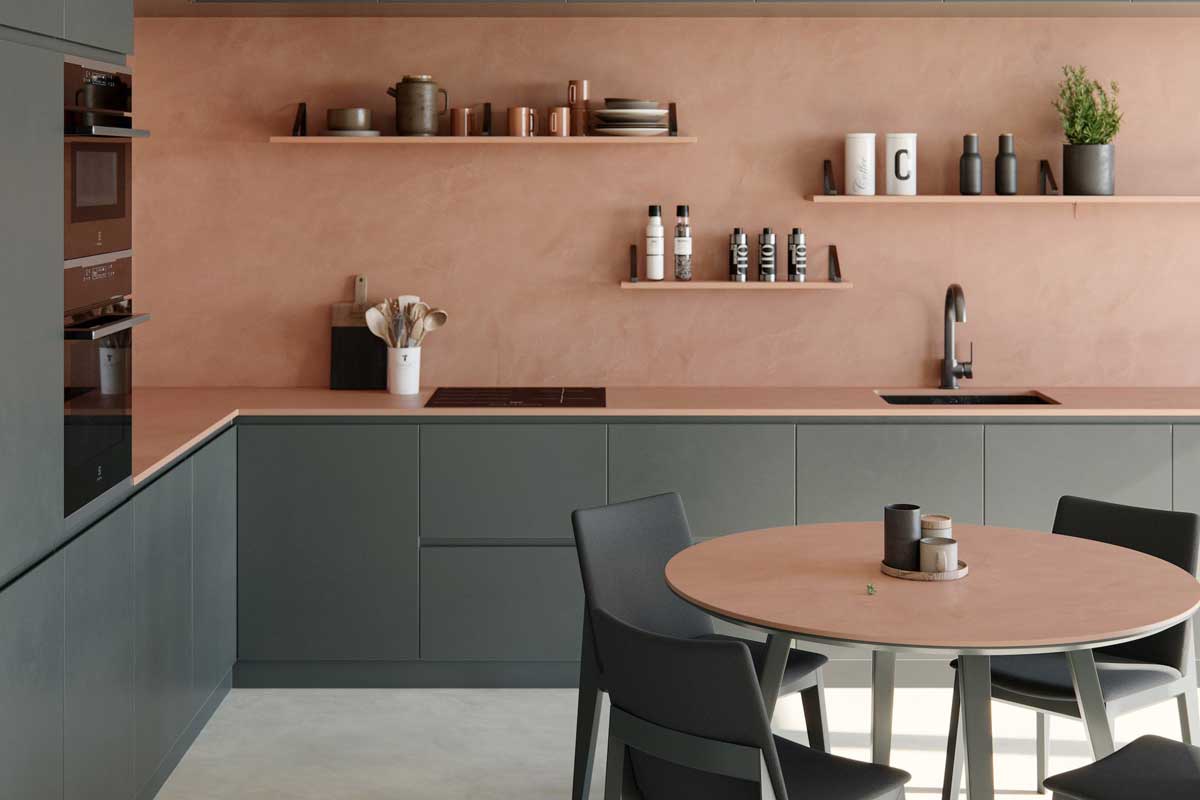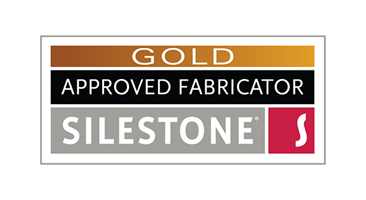Characteristics of Marble
Marble is a soft natural stone and is susceptible to scratches, etchings, and stains.
When the stone is cut into slabs the surface is machined to a gloss finish. This process helps protect it but it will still absorb anything left on the surface.
This is why marble has to be sealed with a stone sealant to help stop any staining damage. This is done in the factory but this sealant breaks down with use and does not last forever. If not maintained properly with routine sealing and daily cleans, marble worktops have an extremely high chance of receiving damage from staining.
Marble is a porous stone, so it is susceptible to staining. Stains are caused by common household items including acidic products like nail varnish remover, bleach, lemon, vinegar, and wine which will attack the stone sealer and then etch the surface leaving patches. However it is not just acidic products that will damage the surface. Water staining is common when the stone sealant not periodically been resealed.
Acidic products strip away the protective sealant that covers a marble countertop. Any cosmetic or others oil based products will stain the surface and penetrate deeper into the material. Oil seeps through the pores and is extremely difficult to remove.
Marble is a soft material so excessive chopping, cutting, or dragging objects such as keys can heavily damage your marble worktop surface with numerous penetrating scratches. Simple things like belt buckles rubbing against the edge of the vanity will also damage it. Also cleaning with rings on your hands can scratch the surface very easily.
Despite marble’s natural cool feel, it is susceptible to extreme temperatures. Hair straighteners etc can cause severe damage and scorch the surface.
How to Care for Your Marble worktops
Your marble worktops have already been pre-sealed but it’s important to reseal marble worktops periodically. Sealing is a process of closing the pores inside of marble to make it resistant to the absorption of chemicals, acids, and other stain-producing moistures. It is recommended having your marble worktops sealed once or twice a year, depending on how often you use them.
 Your vanity units have been sealed withTWINS.TW
Your vanity units have been sealed withTWINS.TW
http://lantania.it/pdf-download/EN/marmopietra/TWINSTW.pdf
We would recommend resealing with this product or similar to keep your surfaces protected for years to come. You can apply this with a cloth after you have thoroughly cleaned your vanity unit.
Everyday Cleaning
Clean regularly by wiping them clean after each use. Doing so eliminates any leftover particles that can scratch or stain the marble.
Daily Care For maximum cleaning results when dealing with your marble worktops, use a microfiber cloth and water or neutral detergent to wipe clean your surface. Because marble is a porous natural stone, it is not recommended to use abrasive products or generic chemicals to clean your marble worktops. Instead, it is wise to invest in a cleaner specially designed for worktops.
The best home cleaner that you can use is a simple mixture of soap and water, but it is wise to invest in a special worktops cleaning solution (natural stone cleaner, ph balanced).
 We would recommend detertwins or similar .
We would recommend detertwins or similar .
(http://lantania.it/catalogo/ceramica-e-gres-en/manutenzione-ordinaria-ceramica-e-gres-en/detertwins) .
This is a neutral detergent suitable to the daily cleaning of any surface in marble stone, granite, terracotta, wood, pvc, linoleum, etc… DETERTWINS gently cleans leaving a pleasant perfume. No need to rinse.
Dilute one glass of product in 4-5 lt of water. In case of tough dirt increase the dilution until using it pure.
Other inspiring articles
What is a Caesarstone worktop?
Caesarstone® is the registered brand name of high quality premium quartz surfaces, suitable for kitchen and bathroom worktops, sinks, shower trays, flooring and wall cladding and staircases. The company was founded near the ancient Roman [...]
Everything you want to know about Silestone
Silestone worktops are re-engineered from a compound of 94% natural quartz crystals and silica, in a special process and adding polymer acrylic resins, making up the balance of 6% content, to strengthen and improve [...]
How do I care for my Silestone worktop?
Silestone requires very little and very simple, mostly preventive care. Silestone worktops are the hardest and most damage- and stain- resistant worktops known to man. Not only is it highly resistant to scratches, stains, knocks [...]
Other inspiring articles
New Compac Terrazzo
COMPAC, the leading Spanish company in the manufacture and distribution of quartz surfaces, has recently launched its new Terrazzo HPS designs, a high-performance stone material for both internal and external applications. This versatile material offers [...]
Nina Magon designs new Dekton Onirika colour collection
Transform your design fantasies into a tangible reality with the latest addition to the Dekton family: the Onirika CollectionThis stunning collection offers an innovative and versatile range of Dekton Surfaces that allow designers and architects [...]
New Dekton Kraftizen colour collection
Dekton Kraftizen, craftsmanship and technology in perfect harmony We are delighted to offer the latest Dekton Collection Kraftizen - to our range of stunning Dekton Worktops. The beauty of hand craftsmanship is embodied by [...]
Silestone vs Granite: Which is right for you?
Overview Quick overview The main difference between Silestone and granite is that granite is natural quarried stone, consisting of between 10-50% quartz, while Silestone is an engineered quartz worktop, made from [...]

